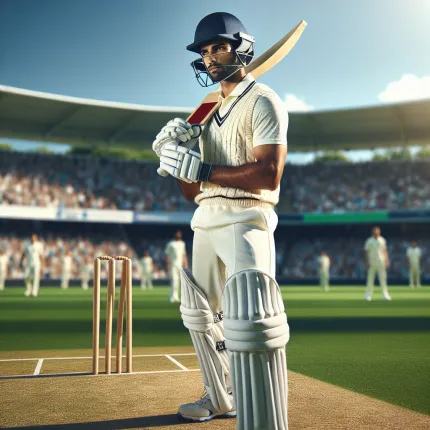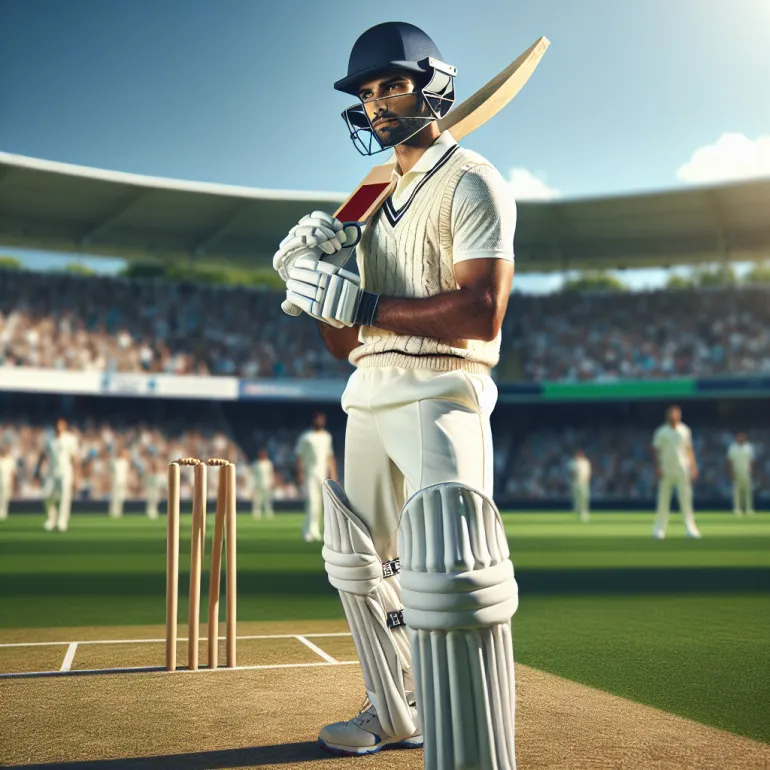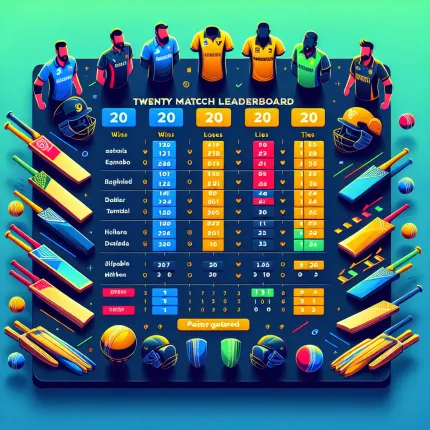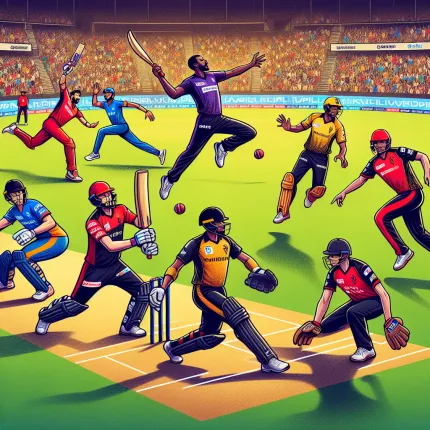
The Indian Premier League (IPL) has been a cricketing spectacle since its inception in 2008. It has not only revolutionized the way cricket is played but also how it is perceived globally. Among the many facets of the IPL, the role of batsmen has been pivotal. This article delves into the concept of the "number 1 batsman" in the IPL, exploring what it means, who has held this unofficial title, and the factors that contribute to such a distinction.
Understanding the "Number 1 Batsman" in IPL
The term "number 1 batsman" in the IPL context is subjective and can vary based on different criteria such as runs scored, strike rate, consistency, and match-winning performances. While the Orange Cap is awarded to the highest run-scorer in a season, being the number 1 batsman encompasses more than just accumulating runs.
Criteria for Being the Number 1 Batsman
- Consistency: Regularly scoring runs across different seasons.
- Impact: Ability to change the course of a match with their innings.
- Strike Rate: Scoring runs at a brisk pace to maintain the team's momentum.
- Adaptability: Performing well in various conditions and against different bowling attacks.
- Leadership: Guiding the team in crucial situations, often seen in captains or senior players.
Notable Number 1 Batsmen in IPL History
Over the years, several batsmen have stood out in the IPL, earning the unofficial title of the number 1 batsman. Here are some of the most notable ones:
Virat Kohli
Virat Kohli, the former captain of Royal Challengers Bangalore (RCB), is often regarded as one of the finest batsmen in IPL history. His record-breaking 2016 season, where he scored 973 runs, remains unparalleled. Kohli's consistency and ability to anchor innings while accelerating when needed make him a standout performer.
David Warner
David Warner, the explosive Australian opener, has been a cornerstone for Sunrisers Hyderabad (SRH). Known for his aggressive batting style, Warner has consistently been among the top run-scorers in the league. His leadership and ability to perform under pressure have often put him in the conversation for the number 1 batsman.
AB de Villiers
AB de Villiers, also known as "Mr. 360," has been a fan favorite due to his innovative and fearless batting. Playing for RCB, de Villiers has produced numerous match-winning performances, often turning games on their head with his extraordinary shot-making ability.
Rohit Sharma
Rohit Sharma, the captain of Mumbai Indians (MI), has led his team to multiple IPL titles. While his leadership is commendable, his batting prowess, especially in crucial matches, has been instrumental in MI's success. Sharma's ability to play big innings in high-pressure situations is a testament to his caliber.
Case Studies: Exceptional Performances
To understand what makes a batsman the number 1 in IPL, let's look at some exceptional performances that have defined careers and seasons.
Virat Kohli's 2016 Season
In 2016, Virat Kohli had a season for the ages. Scoring 973 runs in 16 matches at an average of 81.08 and a strike rate of 152.03, Kohli's performance was a masterclass in consistency and aggression. His four centuries in a single season remain a record, showcasing his ability to dominate bowling attacks.
David Warner's Consistency
David Warner's 2019 season was another example of consistent excellence. Scoring 692 runs in 12 matches at an average of 69.20, Warner's ability to provide explosive starts was crucial for SRH. His partnership with Jonny Bairstow was one of the highlights of the season.
AB de Villiers' Match-Winning Knocks
AB de Villiers has played several memorable innings, but his 133* off 59 balls against Mumbai Indians in 2015 stands out. His ability to hit shots all around the ground and maintain a high strike rate under pressure makes him a unique asset in T20 cricket.
Statistical Insights
Statistics play a crucial role in evaluating a batsman's performance. Here are some key stats that highlight the prowess of these top batsmen:
- Virat Kohli: Over 6000 runs in IPL, with an average of over 37 and a strike rate of around 130.
- David Warner: More than 5000 runs, averaging over 40 with a strike rate above 140.
- AB de Villiers: Over 4500 runs, with a strike rate close to 152, showcasing his aggressive style.
- Rohit Sharma: Over 5000 runs, with a knack for performing in finals and crucial matches.
The Role of Conditions and Team Dynamics
While individual brilliance is crucial, the conditions and team dynamics also play a significant role in a batsman's success. Factors such as pitch conditions, team composition, and the quality of opposition bowling attacks can influence performances.
Impact of Pitch Conditions
The IPL is played across various venues in India, each with its unique pitch characteristics. Batsmen who can adapt to different conditions, whether it's the slow tracks of Chennai or the bouncy pitches of Mohali, often find more success.
Team Composition and Support
A strong team composition can provide the necessary support for a batsman to excel. Having reliable partners at the other end and a solid middle order can allow top-order batsmen to play their natural game without undue pressure.
Conclusion: The Ever-Evolving Title of Number 1 Batsman
The title of the number 1 batsman in IPL is not static. It evolves with each season as new talents emerge and established players continue to redefine their game. While statistics provide a quantitative measure, the qualitative aspects such as impact, adaptability, and leadership are equally important.
As the IPL continues to grow, the competition for this unofficial title will only intensify, promising fans more thrilling performances and unforgettable moments. Whether it's through record-breaking seasons or match-winning knocks, the quest




